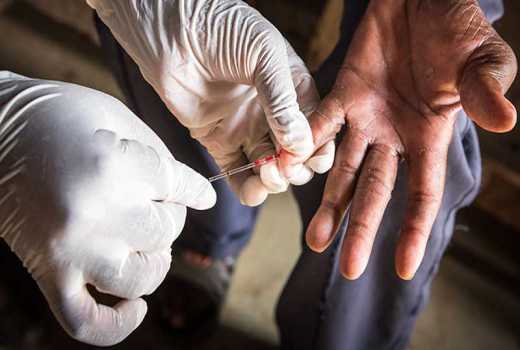
Scientists want their colleagues who partnered with two Dutch doctors to put Kenyans on unethical HIV treatment punished.
The Dutch doctors working with a Kenyan medic and a nurse had in 2006 put 228 HIV patients through what Dutch authorities now say were unethical drug trials.
The group put the HIV positive patients on a homeopathic substance called Iquilai, in a process which Dutch authorities say contravened international regulations on human drug trials.
The Dutchmen have been let off the hook back home with only a simple warning.
In a complaint on March 17 this year, scientists from the Kenya Medical Research Institute (Kemri) and The Netherlands said the punishment did not go far enough.
Returning a guilty verdict on the two Dutchmen on July 25, 2017, The Netherlands health disciplinary tribunal said the researchers did not follow the proper protocol and failed to do a proper risk assessment.
The tribunal also found that the study did not get the required ethics approval for clinical trials on human subjects while the published data was inconsistent.
For this, the tribunal only warned the two doctors arguing that despite the established malpractices, they never intended to cause any harm.
The verdict has caused an uproar from scientists who argue that good intentions do not replace ethical conduct in research.
“We strongly believe the burden to comply with ethical principles is on the researcher, whether foreign or local, all good intentions aside,” they say in the journal The Lancet.
Research collaborators
“The local research collaborators should also be held accountable,” demand the complainants who include Prof Elizabeth Bukusi, a senior researcher at Kemri.
The matter cropped up in 2006 when the team put the patients on the substance Iquilai, a mineral supplement which thy claimed could treat HIV and Aids patients.
The study findings were published online in 2008 by the sponsoring NGO, Aids Remedy Fund, registered in The Netherlands.
According to the study the work was carried out in two locations.
One was in Yala which was coordinated by the Kenyan doctor who was the lead investigator and also a director at the medical facility in Mombasa.
The doctor is yet to respond to our inquiries on the matter. The other site was in Ndhiwa, where the study says was conducted by a nurse.
A major conclusion of the study was that more than 90 per cent of the study patients put on Iquilai had responded positively to the treatment.
But following an uproar in Kenya, UK and the Netherlands, the matter was raised in the Dutch Parliament.
The then health minister Edith Schippers had ordered the health inspection unit to investigate whether the Dutch doctors had violated any medical regulations.
In 2016, the two were brought before the health tribunal but acquitted of any wrong doing. The tribunal had ruled that the Kenyan doctor involved held the final responsibility for organising the experiments.
However, the health inspection unit had appealed the ruling in a process that led to the July 2017 guilty verdict and a warning.
This acknowledgment showed that foreign doctors working in poor countries can be held accountable.
 The Standard Group Plc is a multi-media organization with investments in media
platforms spanning newspaper print
operations, television, radio broadcasting, digital and online services. The
Standard Group is recognized as a
leading multi-media house in Kenya with a key influence in matters of national
and international interest.
The Standard Group Plc is a multi-media organization with investments in media
platforms spanning newspaper print
operations, television, radio broadcasting, digital and online services. The
Standard Group is recognized as a
leading multi-media house in Kenya with a key influence in matters of national
and international interest.











